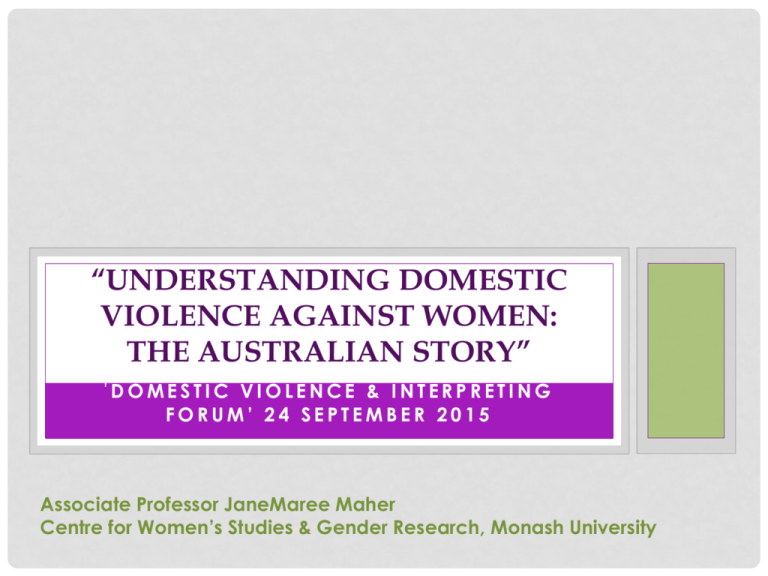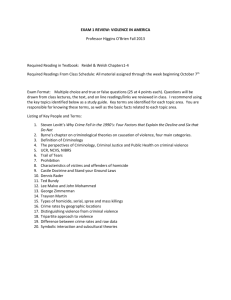
“UNDERSTANDING DOMESTIC
VIOLENCE AGAINST WOMEN:
THE AUSTRALIAN STORY”
'DOMESTIC VIOLENCE & INTERPRETING
FORUM’ 24 SEPTEMBER 2015
Associate Professor JaneMaree Maher
Centre for Women’s Studies & Gender Research, Monash University
PRESENTATION OUTLINE
• Australian story: incidences and
responses
• Terms: the importance of
language
• Gender norms and discourses:
towards equality
• The contemporary challenge
Maher 2015
2
THE MOST PREVALENT CRIME?
Maher 2015
3
RESPONSES AND LEADERSHIP
• Christine Nixon and Ken Lay,
VicPol Chief Commissioners
• National Plan to Reduce Violence
against Women and their Children 2010–
2022
• Our Watch headed by
Natasha Stott-Despoja, Australian
Ambassador for Women and Girls
• Australian National Research
Organisation for Women’s Safety
Maher 2015
4
VIOLENCE AND TERMINOLOGY
Domestic
Violence
Family
Violence
Intimate
Partner
Violence
Family Violence Protection Act (2008), family violence defined as:
Violent, threatening, coercive or controlling behaviour in current or
past familial, domestic or intimate relationships. This encompasses
not only physical injury but direct or indirect threats, sexual assault,
emotional and psychological torment, economic control, property
damage, social isolation and behaviour which causes a person to
live in fear. Family violence is committed primarily, though not
exclusively, by men against women. This definition encompasses
violence against children and between siblings and is not limited to
criminal behaviours as identified in the Victorian Crimes (Family
Violence) Act 1987.
Maher 2015
5
GENDER EQUALITY & EQUITY
• Gender equality requires equal enjoyment by
women and men of socially-valued goods,
opportunities, resources and rewards.
http://web.unfpa.org/gender/resources3.htm#2)
• "Gender equity is the process of being fair to
women and men." (UNFPA)
Maher 2015
6
FOR EVERYONE
Maher 2015
7









